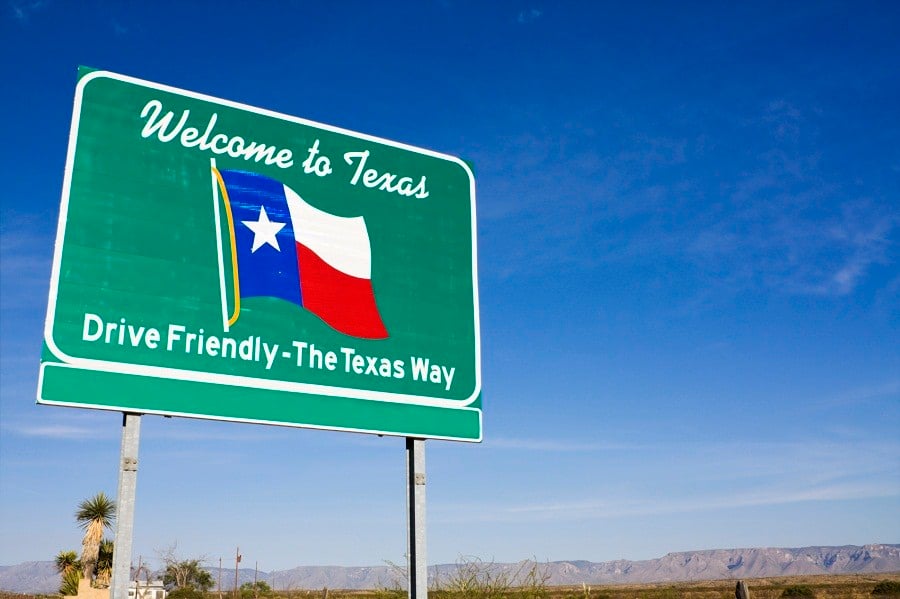

A pair of anti-ESG laws Texas passed in 2021 are costing the state hundreds of millions in lost economic activity and more than 3,000 full-time jobs, a new study found.
The findings of the research add to those in an academic paper last year that showed significant increases in borrowing costs for the Lone Star State as a result of the legislation, which blocks its business with companies perceived to be boycotting the oil or firearms industries.
While the new report is not novel in finding that the state’s laws appear to have backfired, the source behind the paper is revealing. It was published by the Texas Association of Business, a chamber of commerce that among many members includes major oil companies like ExxonMobil, Chevron, and ConocoPhillips.
The high-level findings of the report are that the laws cost Texas about $669 million in lost economic activity during fiscal year 2022-2023, along with $181 million in decreased annual earnings, 3,034 fewer full-time jobs and more than $37 million in tax revenues.
“These findings illustrate that when government attempts to mandate values, no matter what kind, to businesses, the market loses,” the study’s author, economist Jon Hockenyos, said in an announcement of the results. The Texas Association of Business commissioned Austin-based consulting firm TXP to publish the report.
Although Hockenyos credits Texas’ tax policies with building a “pro-business climate” that has benefited its economy over a number of years, “there has been a tightening of the competitive bond market in Texas due to enforcement actions pursuant to Texas’ 2021 Fair Access law, which could undermine this significant progress,” he wrote. “Recently, two major banks, Citi and Barclays were dropped from underwriting municipal bond deals, and more may follow as further enforcement actions are announced.”
Last year, research by authors at the Wharton School and the Federal Reserve Bank of Chicago found that Texas cities paid anywhere from $303 million to $532 million more on interest on $32 billion of bonds issued during the first eight months after the laws went into effect. That was a result of a sudden drop in competition in the bond market, as several of the biggest lenders were suddenly no longer doing business with the state.
“I'm slightly surprised just how close the estimated costs are in this new report to the high-level costs to local governments that we estimate in our paper,” one of the authors of that paper, Daniel Garrett, assistant professor of finance at Wharton, said in an email. “The estimates in this policy report are slightly larger, but they also have a slightly different definition of relevant costs, a slightly different time frame, and a totally different and complementary empirical approach. I'm not surprised that they also find restrictions on what financial institutions are eligible to work with public borrowers leads to higher fees.”
Texas Gov. Greg Abbott’s office did not respond to a request for comment. Abbott had championed the legislation aimed at financial services companies like BlackRock that, despite being massive investors in the oil and gas industry, have been accused of boycotting it.
Other states, including Oklahoma, Kentucky, and West Virginia, also restrict business with financial services companies that are seen as boycotting the fossil fuels business.
“It is not surprising that we are seeing changing market factors impact cost of capital,” Maria Lettini, CEO of US SIF: The Sustainable Investment Forum, said in an email. “It is in the best interest of governments, shareholders, and beneficiaries to give their fiduciaries the freedom to choose from a variety of professional finance institutions, which in turn reinforces the competitive free market structure. Unnecessary potential roadblocks to infrastructure projects and other local investment have the potential to slow the growth and transition of communities, industries, and local job markets.”
In conservative-leaning states that have anti-ESG laws or policies, business groups in some cases have shown their opposition to the restrictions, said Connor Gibson, senior advisor to Pleiades Strategy.
“We’ve found that Republicans are willing to waste a ton of money in the protection of industry,” Gibson said. “Energy companies – the largest polluters in the US – are fine with ESG on paper … All of them have some iteration of ESG or a sustainability report. The fact that this concept is so much less controversial among the companies that are supposedly being defended by the policy trend is something this paper brought a new perspective to.”

A new proposal could end the ban on promoting client reviews in states like California and Connecticut, giving state-registered advisors a level playing field with their SEC-registered peers.

Morningstar research data show improved retirement trajectories for self-directors and allocators placed in managed accounts.

Some in the industry say that more UBS financial advisors this year will be heading for the exits.

The Wall Street giant has blasted data middlemen as digital freeloaders, but tech firms and consumer advocates are pushing back.

Research reveals a 4% year-on-year increase in expenses that one in five Americans, including one-quarter of Gen Xers, say they have not planned for.
Orion's Tom Wilson on delivering coordinated, high-touch service in a world where returns alone no longer set you apart.
Barely a decade old, registered index-linked annuities have quickly surged in popularity, thanks to their unique blend of protection and growth potential—an appealing option for investors looking to chart a steadier course through today's choppy market waters, says Myles Lambert, Brighthouse Financial.
